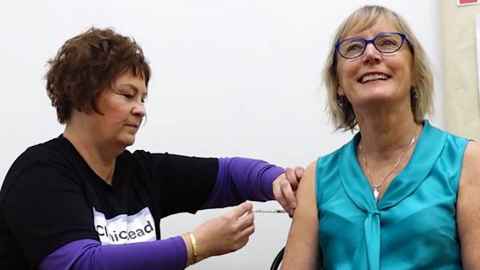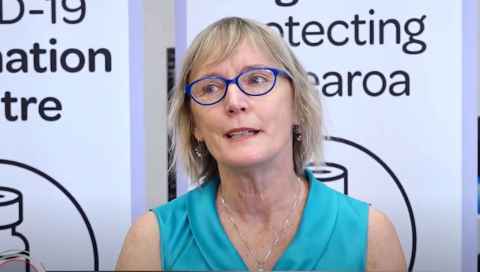Nikki Turner gets backing for vaccine hesitancy project
28 July 2021
A new tool will gauge why some New Zealanders are refusing or delaying vaccinations.

Professor Nikki Turner, director of the Immunisation Advisory Centre at the University of Auckland, won $900,000 of funding from the Health Research Council to develop the tool with Australian colleagues and the World Health Organisation.
Questionnaires will be used to predict vaccine uptake, measure and monitor vaccine acceptance, and identify barriers to vaccine access.
“We estimate that between 2 and 4 percent of the New Zealand population may be highly suspicious of vaccinations, and they are unlikely to change their minds,” Professor Turner said in a press release from the HRC.
“However, the group of people we call ‘vaccine hesitant’ can vary hugely from 5 percent to up to 20 percent of the population and there are a range of barriers as to why they do not get vaccinated, including their social environment and distrust of health services. It is this group of people that we are targeting.”

Professor Turner and Hauora Māori lecturer Dr Esther Willing (Ngāti Toarangatira) from the University of Otago will co-lead the New Zealand arm of the research, which is part of a larger study led by Australia's Murdoch Children’s Research Institute and the University of Melbourne.
Child immunisation rates in New Zealand are low by international standards and have been dropping since 2016.
The percentage of fully immunised children is particularly low among tamariki Māori and children living in high-deprivation areas. A 2019 measles outbreak was caused by a mixture of a history of low vaccination coverage, poor access to services and a lack of confidence in the vaccine.
Media contact
Paul Panckhurst | media adviser
M: 022 032 8475
E: paul.panckhurst@auckland.ac.nz